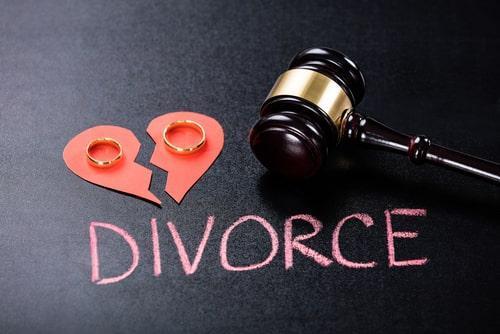Grounds for Divorce: Clearing Up the Confusion
 When someone begins to consider divorce, well-meaning family and friends may give them outdated or inaccurate advice. Divorce laws vary from state to state. Furthermore, the laws change frequently. So, if someone got divorced in 2015, they may have divorced under a completely different set of laws than someone in 2023. It is important for anyone contemplating divorce to educate themselves about the current divorce laws. Consult an experienced divorce attorney for help.
When someone begins to consider divorce, well-meaning family and friends may give them outdated or inaccurate advice. Divorce laws vary from state to state. Furthermore, the laws change frequently. So, if someone got divorced in 2015, they may have divorced under a completely different set of laws than someone in 2023. It is important for anyone contemplating divorce to educate themselves about the current divorce laws. Consult an experienced divorce attorney for help.
Grounds for Divorce in Illinois in 2023
Grounds are the legal justification for a divorce. Illinois used to have fault-based grounds for divorce. For example, a spouse could assert mental cruelty or adultery as a basis for the divorce. Fault-based divorces are no longer available in Illinois. The only grounds for divorce is irreconcilable differences between the parties, which means that there are two people who no longer want to be married and cannot work out their problems. This is called “no-fault” divorce.
How to Get a No-Fault Divorce
To qualify for divorce in Illinois, either you or your spouse must have lived in the state for at least 90 days prior to filing. If you and your spouse both agree that there are irreconcilable differences between you that cannot be resolved, you can file for divorce and start the process immediately. However, if a spouse contests the divorce or disagrees that there are irreconcilable differences, you may need to take additional measures to qualify for divorce.
Per Illinois law, if spouses live apart for at least six months, this automatically establishes that there are irreconcilable differences - even if a spouse disagrees. This law is intended to give both parties time away from each other to determine if the marriage can be saved. However, if both spouses agree that there are irreconcilable differences, there is no need to live apart for six months before filing for divorce.
Illinois case law has established that "living apart" for the purposes of establishing irreconcilable differences does not require that the spouses reside in separate homes. Instead, "living apart" refers to a situation in which the spouses are no longer functioning as husband and wife, even if they live under the same roof. This could include living separate lives within one household, such as sleeping in different bedrooms.
Contact our Kane County Divorce Lawyers
For trustworthy legal advice and high-quality legal representation during your Kane County divorce, contact Goostree Law Group. Our St. Charles divorce attorneys are ready to help you in any way you need. Call 630-584-4800 for a free initial consultation to learn more about our services.
Source:
https://www.ilga.gov/legislation/ilcs/ilcs4.asp?ActID=2086&ChapterID=59&SeqStart=3700000&SeqEnd=5200000












